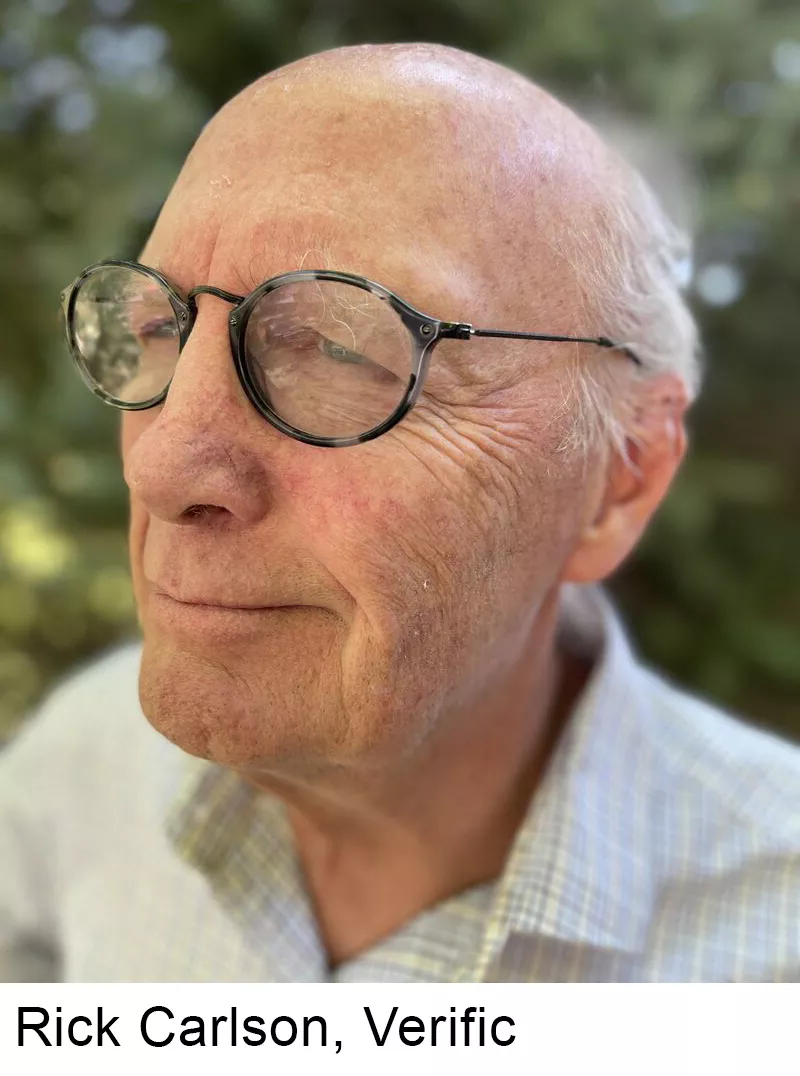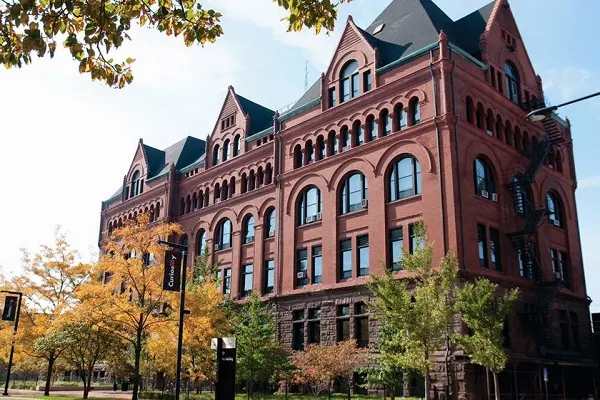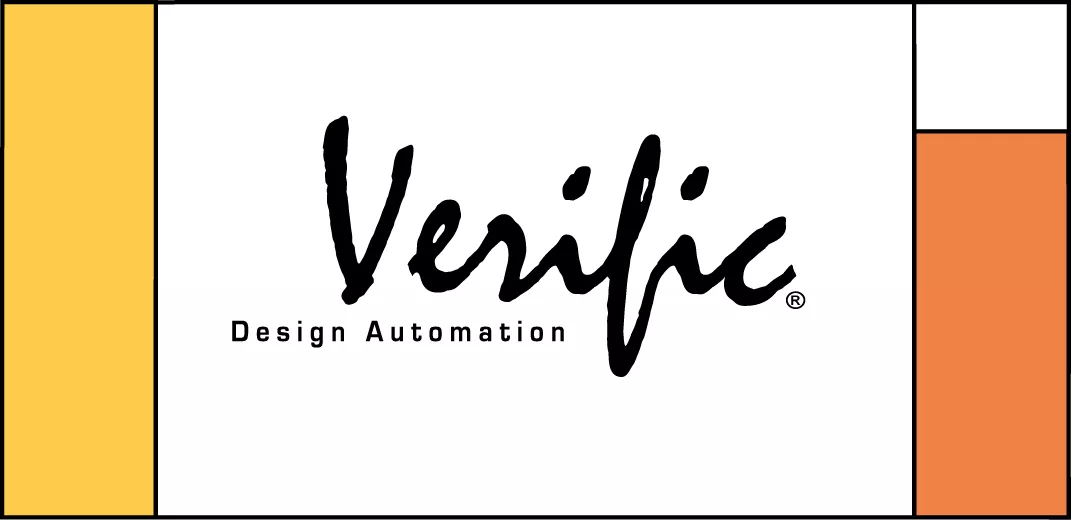
Rick Carlson, Vice President of Worldwide Sales at Verific Design Automation, an ESD Alliance member, received an email from his college’s alumni group asking for a donation – a request that led to what’s now a deep connection of networking, volunteering and mentoring at the Illinois Institute of Technology (Illinois Tech) in Chicago.
The partnership Rick forged with Illinois Tech is an inspiring story of ways individuals can get involved in helping the semiconductor industry’s professional development programs at the college level.
Smith: What is your connection to Illinois Tech?
Carlson: When I look back at my college career, I couldn't afford to go to Illinois Tech early on. I went to junior college for two years and received an Associate of Arts degree. My math professor was getting a Ph.D. at Illinois Tech and encouraged me to apply, which I did. I got in as a junior. I played basketball at a top-ranked high school in Chicago and decided to walk on to see if I could make the team. I not only made the team, I received an athletic grant that paid for my tuition.
Smith: How did you get so deeply involved working with the school?
Carlson: My reconnection with Illinois Tech dates back to about 18 months after I received the email soliciting donations. I called the alumni office and asked how I could give back to the school that helped launch my career in high tech. After learning about my background, the Alumni Giving’s Office Director suggested that instead of writing a check I should volunteer using my 40+ years’ experience in EDA and business development to help the school. Not knowing what that would lead to, I said yes.
 Almost immediately, I started networking and making connections. I got deeply involved through initial introductions to the Dean of the College of Computing, Dr. Lance Fortnow, who authored The Golden Ticket: P, NP and the Pursuit of the Impossible. I was a math major, and this book re-ignited my interest in mathematics and my networking led to additional introductions to other colleges including the College of Electrical and Computer Engineering (ECE).
Almost immediately, I started networking and making connections. I got deeply involved through initial introductions to the Dean of the College of Computing, Dr. Lance Fortnow, who authored The Golden Ticket: P, NP and the Pursuit of the Impossible. I was a math major, and this book re-ignited my interest in mathematics and my networking led to additional introductions to other colleges including the College of Electrical and Computer Engineering (ECE).
My angel investment in a Colorado-based company called Mountain Flow that makes a plant-based ski wax led to an introduction to the chemical engineering department now doing paid research project on a next-generation ski wax.
My interest in learning about technology transfers led me to the Executive Director of Illinois Tech’s Kaplan Institute of Technology and Entrepreneurship. Kaplan is teaching students about what it takes to start a company.
Smith: What does Illinois Tech ask you to do?
Carlson: I am now on three boards with a fourth board seat imminent at Illinois Tech. I am also producing a tech documentary series about a Chicago company called Influit Energy that developed a new form of energy that uses nano electric particles. The three founders are all affiliated with Illinois Tech as researchers and professors. The footage is finished and we are editing. I went to the American Film Market in November to shop this series to distributors and streamers. Proceeds from the potential sale of the series will go to Illinois Tech, which is raising $1 billion for its endowment.
Smith: What makes the school so interesting to you?
Carlson: What makes Illinois Tech so attractive is the school’s DNA. It was founded in the late 1890s based on a request from a local minister to raise $1 million to build a school that would welcome students from all ethnicities and financial strata.
The Wall Street Journal recently released its College Pulse 2024 Best Colleges in the U.S. Illinois Tech was ranked #23 following other universities including Princeton, MIT, Yale, Columbia and Dartmouth.

Illinois Institute of Technology
Smith: How do you know you’re making an impact at the school?
Carlson: I know I am making an impact based on feedback from the school’s leadership. My major focus is to highlight the significance of alumni giving back to their schools. And in the case of Illinois Tech, I am following in the footsteps and inspired by Illinois Tech alumni including Chris Gladwin, founder of CleverSafe, Ed Kaplan, inventor of the bar code, Rohit Prasad, creator of Amazon’s Alexa, Marty Cooper, who led the team that built the first mobile phone and Victor Tsao, who founded Linksys and enabled high-speed home internet.
Smith: What can semiconductor industry executives do to help create greater interest in careers in the semiconductor industry?
Carlson: With the Chips Act and the focus on bringing semiconductor manufacturing back to the U.S., a whole new window of opportunity has opened. According to the statistics, the semiconductor industry will need tens of thousands more engineers to keep the momentum going. Illinois Tech has 467 students in the ECE curriculum split between undergraduates, Master of Science degree and Ph.D. students. People like me can encourage them to look closely at the semiconductor industry.
 In the electronics and computer engineering area, I am working with Dan Ganousis of Tenstorrent to set up more specific interactions with chip companies and technologies such as RISC-V. Contributions like this are welcome by colleges and universities.
In the electronics and computer engineering area, I am working with Dan Ganousis of Tenstorrent to set up more specific interactions with chip companies and technologies such as RISC-V. Contributions like this are welcome by colleges and universities.
Smith: You continue to be Verific’s Vice President of Sales. How do you juggle your role at Verific and your efforts with Illinois Tech?
Carlson: Naturally, Illinois Tech has Verific tools for use in the ECE department.
I’ve worked for Verific for 20 years and it has a well-deserved reputation for excellent customer support and flexibility. That is certainly the case with my work at Illinois Tech. Rob Dekker, its founder, and Michiel Lighthart, its COO, have been supportive and they are embracing my efforts.
Smith: Any last thoughts?
Carlson: The CHIPS Act highlights the urgency for workforce development programs. The SEMI Foundation is helping to grow the talent pipeline and encourages companies to get involved. I hope to inspire individuals to get involved with alumni groups at their colleges and universities through monetary donations but also by becoming active participants in student activities. It’s a great way for students to get a feel for our industry and look more closely at semiconductor careers. It’s also a great way for us to give back to the place that gave us a start.
About Rick Carlson
Rick Carlson is a veteran of the EDA industry. He joined Verific from AccelChip. Prior to AccelChip, Carlson held positions as vice president of sales at Averant, Synplicity (now Synopsys), Escalade (now Siemens), and EDA Systems. Carlson co-founded the EDA Consortium (now the ESD Alliance) in 1987.
Robert (Bob) Smith is executive director of the ESD Alliance, a SEMI Technology Community.